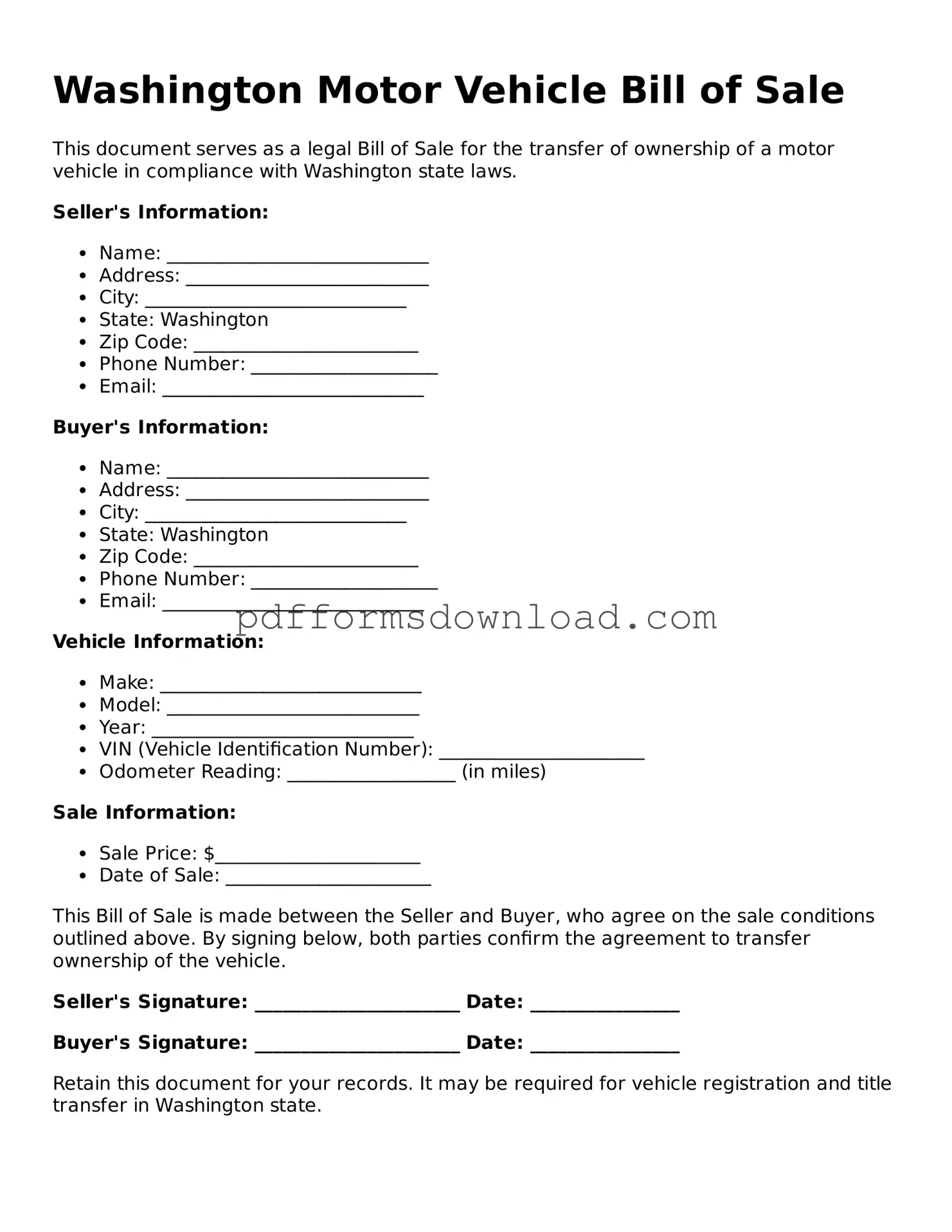Printable Washington Motor Vehicle Bill of Sale Form
The Washington Motor Vehicle Bill of Sale form is a legal document that records the transfer of ownership of a vehicle from one party to another. This form provides essential details about the vehicle and the transaction, ensuring both parties are protected. To get started on your vehicle sale, fill out the form by clicking the button below.
Make This Document Now

Printable Washington Motor Vehicle Bill of Sale Form
Make This Document Now

Make This Document Now
or
Free PDF File
Your form is almost ready
Complete your Motor Vehicle Bill of Sale online — edit, save, and download easily.